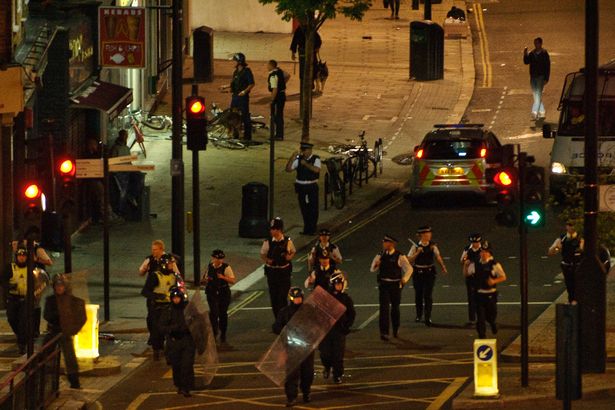BlackBerry has issued a statement regarding the London riots after claims that those involved are using the company's secure messaging service, BlackBerry Messenger (BBM), to organise the rioting.
“We feel for those impacted by this weekend’s riots in London,” says Patrick Spence, managing director, Global Sales and Regional Marketing, in a statement issued to Pocket-lint.
"We have engaged with the authorities to assist in any way we can. As in all markets around the world where BlackBerry is available, we co-operate with local telecommunications operators, law enforcement and regulatory officials. Similar to other technology providers in the UK we comply with The Regulation of Investigatory Powers Act and co-operate fully with the Home Office and UK police forces.”
But what does RIM mean by "engaged with the authorities to assist in any way we can"? Sadly, talking to execs at the handset manufacturer, they can't tell us any more than that. That's probably because, even if they wanted to, they could be directly affected by the Regulation of Investigatory Powers Act 2000 - or RIPA for short. Detailed by Wikipedia, it is "an Act of the Parliament, that regulates the powers of public bodies to carry out surveillance and investigation, and covering the interception of communications".
Put simply, RIM are assisting the police, but are unlikely to be able to explain further because saying so breaks the covenant.
RIM has found itself at the centre of the media storm following four nights of rioting in London and other major cities, with some experts claiming that users are turning to the service because it is secure and can't be traced, unlike Twitter and Facebook which are considerably more open and public.
While that could be the case, it is also worth pointing out that rioters are also likely to be using their BlackBerry phones and BBM because they are the tools they would normally use on a daily basis for far more innocent and usual purposes - such as organising to meet with friends, and generally keep in touch. If they all owned iPhones, they'd be using those instead.
And chances are, if the service didn't exist, other tools could and would be used, including standard text messaging, email or other chatrooms and messaging applications. BBM, unique to BlackBerry phones, works in a similar way to paid text messages, but is free to use - that's more of an incentive than they fact that it is secure.
Egyptian protesters used Twitter and Facebook in their protests because they wanted to share their message to the world to show what was going on as it happened. The London riots aren't protesting about government oppression, but have a more sinister role with little focus to share a message. There are few that don't recognise the UK rioters' actions as little more than acts of crass criminality, rather than protest.
What are your thoughts? Do you believe that technology is fuelling the (at times literal) flames of the riots? Let us know in the comments below...
Pic: hughepaul / Flickr

